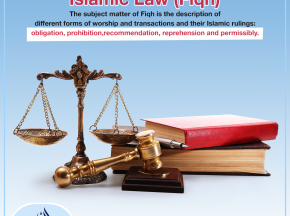content of level
Delivering Friday and Eid Sermons in Local Languages
Delivering Friday sermons in local languages is not just a necessity; it’s a powerful way to connect with our diverse communities. Many of us come from different linguistic backgrounds, and when sermons are only in Arabic, it creates a barrier. Imagine sitting in a congregation, wanting to absorb the wisdom, but struggling to understand. That’s where local languages come in. They ensure that everyone, including new converts and non-Arabic speakers, feels included and empowered. Scholars today recognize this need. Many permit delivering sermons in local languages, emphasizing effective communication and inclusivity. They argue that the essence of the message is lost if it’s not understood. Yet, some still advocate for preserving Arabic, suggesting a blend—delivering the sermon in Arabic followed by a translation. This way, we honor tradition while making the message accessible. Ultimately, it’s about finding balance. Each community must weigh its unique circumstances and seek guidance from local scholars. By embracing local languages, we can ensure that everyone benefits from the sermons, fulfilling our religious duties with understanding and unity.
Delivering Friday and Eid Sermons in Local Languages
Delivering Friday sermons in local languages is not just a necessity; it’s a powerful way to connect with our diverse communities. Many of us come from different linguistic backgrounds, and when sermons are only in Arabic, it creates a barrier. Imagine sitting in a congregation, wanting to absorb the wisdom, but struggling to understand. That’s where local languages come in. They ensure that everyone, including new converts and non-Arabic speakers, feels included and empowered.
Should we not tell people about our upcoming events due to fear of evil eye
Should we not tell people about our upcoming events due to fear of evil eye
The Purity
In Islam, purity (often referred to as "Tahara" in Arabic) holds immense significance, encompassing both the physical and spiritual dimensions of a believer's life. Physical Purity relates to cleanliness of the body, clothes, and the place of worship. Ritual purity is a prerequisite for many acts of worship, such as the five daily prayers. Methods like "wudu" (ablution) and "ghusl" (full body wash) are prescribed to attain this cleanliness. Moreover, cleanliness in dietary habits, personal hygiene, and general living are emphasized throughout Islamic teachings.
Daurah Fiqh (Part one)
Daurah Fiqh (Part 1) - Assim al hakeem.
Learn Fiqh with Al-Hakeem | The Islamic law
In this Lecture, Sh. Assim Al-Hakeem discusses and explains the meaning of Islamic Law (Fiqh), Linguistically speaking, the Arabic term ‘Fiqh’ has several meanings, including ‘understanding’ and ‘profound and accurate understanding’. In an Islamic context, it means ‘knowledge of Islamic rulings on practical matters based on detailed evidence.
Learn Fiqh with Al-Hakeem | An introduction to Islamic Fiqh
In this Lecture, Sh. Assim Al-Hakeem discusses and explains a brief introduction to the meaning of Islamic jurisprudence (fiqh). This course will cover all the practical rules that every Muslim, man or woman, should know, citing their bases in the Qur’an and the Sunnah.
Islamic Fiqh
Your easy way to learn about the rules of Islamic Fiqh Register in the Islamic jurisprudence platform to be able to pass the levels after a wonderful educational experience. Collect your points and get a number of medals and a certificate.
Can I Use Perfumes With Alcohol & Soaps Derived From Animal Fat?
Can I Use Perfumes With Alcohol & Soaps Derived From Animal Fat?
The Four Schools of Fiqh
The Four Schools of Fiqh 1: Hanafi School 2: Maliki School 3: Al-Shafi'i School 4: Imam Ahmad Ibn Hanbal
Islamic Law (Fiqh)
The subject matter of Fiqh is the description of different forms of worship and transactions and their Islamic rulings: obligation, prohibition, recommendation, reprehension and permissibly.
The Description of the Prophet’s Prayer
Each worship has a quality and manner demonstrated by Allah or by His prophet peace be upon him. So the writer of this message said in the introduction: "This is a brief about the manner of praying of the prophet introduced to each Muslim to try hard to follow him for the saying of the prophet "Pray as you have seen me praying." narrated by Bukhari.
Extent of punishment
Ta’zir punishment has no measures, they are left to the judge’s discretion, it can go as high as the capital punishment if it protects the community as in the case of spying crime.
What is reprehensible in prayer
During prayers, one has to avoid some acts that are discouraged in a prayer. Those acts such as; moving too much, reciting only the Fatha in the first tow rakaa, closing the eyes, and other gestures discussed below.














